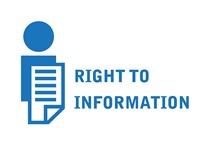Right to Information (RTI)
NUJS Kolkata has finally complied with part of its duties under the Right to Information (RTI) Act, and supplied to students 240 PDF documents containing meeting minutes of executive, general, academic, finance and standing councils and committees, going as far back as 2000.
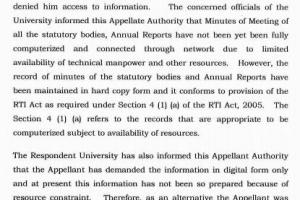 As RGNUL Patiala remains one of several national law universities (NLU) that still do not publish their annual financial statements online, one right to information (RTI) applicant approached the Central Information Commission (CIC) against the law school.
As RGNUL Patiala remains one of several national law universities (NLU) that still do not publish their annual financial statements online, one right to information (RTI) applicant approached the Central Information Commission (CIC) against the law school.
NUJS students RTI admin’s alleged burial of first-ever university review report, receive no response
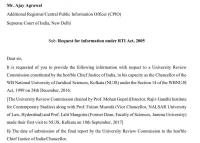 NUJS Kolkata students have filed Right to Information (RTI) requests for the report of the law school's 16-years-overdue review, as the administration has not made the report public even two months after it was submitted to the Chief Justice of India (CJI).
NUJS Kolkata students have filed Right to Information (RTI) requests for the report of the law school's 16-years-overdue review, as the administration has not made the report public even two months after it was submitted to the Chief Justice of India (CJI).
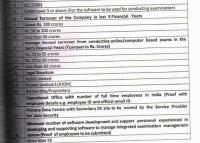 The Patna high court was “biased” in its decision to dismiss a writ questioning the legality of the Common Law Admission Test (CLAT) 2017 tender, the writ petitioner has alleged.
The Patna high court was “biased” in its decision to dismiss a writ questioning the legality of the Common Law Admission Test (CLAT) 2017 tender, the writ petitioner has alleged.
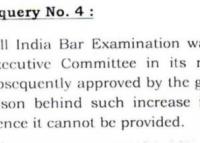 The Bar Council of India (BCI) denied a right to information (RTI) request for the meeting minutes and reasons for its unexpected decision to yet again increase the bar exam fees by another 40 per cent.
The Bar Council of India (BCI) denied a right to information (RTI) request for the meeting minutes and reasons for its unexpected decision to yet again increase the bar exam fees by another 40 per cent.
 The Delhi high court has bizarrely exempted state bar councils from the statutory duty to publish their meeting minutes online, on the ground that some of these minutes may contain third party information of a confidential nature.
The Delhi high court has bizarrely exempted state bar councils from the statutory duty to publish their meeting minutes online, on the ground that some of these minutes may contain third party information of a confidential nature.
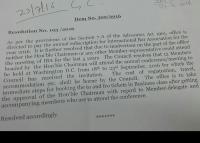 The Bar Council of India’s (BCI) proposed delegation of 12 BCI members and “accompanying members” to Washington DC that would have cost more than Rs 48 lakh according to our report on 6 September, is now apparently cancelled.
The Bar Council of India’s (BCI) proposed delegation of 12 BCI members and “accompanying members” to Washington DC that would have cost more than Rs 48 lakh according to our report on 6 September, is now apparently cancelled.
 On 17 August, before it broke for a long weekend of four days, a three-judge Supreme Court (SC) bench of justices Ranjan Gogoi, Prafulla Chandra Pant and AM Khanwilkar referred a challenge to its immunity from the Right to Information (RTI) Act to a five-judge constitution bench. The decision, made after a brief hearing, was a surprise as well as a disappointment.
On 17 August, before it broke for a long weekend of four days, a three-judge Supreme Court (SC) bench of justices Ranjan Gogoi, Prafulla Chandra Pant and AM Khanwilkar referred a challenge to its immunity from the Right to Information (RTI) Act to a five-judge constitution bench. The decision, made after a brief hearing, was a surprise as well as a disappointment.
A five-judge Constitution bench will decide whether the Supreme Court is exempted from disclosing information including file noting and correspondence on the appointment of judges to higher judiciary and other information under the Right to Information Act (RTI).
GLC Ernakuklam’s five year LLB program is under threat of de-recognition by the Bar Council of India (BCI), following the BCI’s Right to Information (RTI) revelation that the University Grants Commission (UGC) doesn’t recognise the degree, reported the New Indian Express.
 The Bar Council of India (BCI) has still not complied with its statutory duty under the Right to Information (RTI) Act 2005, more than six weeks after the Central Information Commission (CIC) threatened to impose maximum penalty on BCI chairman Manan Kumar Mishra, if the BCI continues in its non-compliance of the law.
The Bar Council of India (BCI) has still not complied with its statutory duty under the Right to Information (RTI) Act 2005, more than six weeks after the Central Information Commission (CIC) threatened to impose maximum penalty on BCI chairman Manan Kumar Mishra, if the BCI continues in its non-compliance of the law.
 The Bar Council of India (BCI) has not satisfactorily complied with the Right to Information Act 2005 (RTI Act) provision which requires that it publish all its affairs on its website, held the Central Information Commission (CIC). The CIC said it is inclined to impose maximum penalty on the BCI if it doesn’t comply in a definite amount of time.
The Bar Council of India (BCI) has not satisfactorily complied with the Right to Information Act 2005 (RTI Act) provision which requires that it publish all its affairs on its website, held the Central Information Commission (CIC). The CIC said it is inclined to impose maximum penalty on the BCI if it doesn’t comply in a definite amount of time.
The Supreme Court has observed that revealing the name of examiners evaluating answer sheets in competitive exams under the RTI Act could lead to “dire consequences” and “create confusion and public interest,” as unsuccessful candidates may try to seek revenge.
The observations were made by a bench of Justices MY Eqbal and Arun Mishra, while partially allowing the appeal of Kerala Public Service Commission against a 2011 Kerala high court order directing it to make available all information, including the identity of the examiner.
reported India Today.
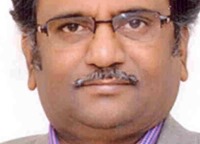 Retired Supreme Court judges justices Gyan Sudha Mishra, CK Prasad and Balbir Singh Chauhan, were nominated by the apex court to head the proposed Lokpal ombudsman. Also in the running is retired Jharkhand high court chief justice and current Appellate Tribunal for Electricity chairman M Karpaga Vinayagam
Retired Supreme Court judges justices Gyan Sudha Mishra, CK Prasad and Balbir Singh Chauhan, were nominated by the apex court to head the proposed Lokpal ombudsman. Also in the running is retired Jharkhand high court chief justice and current Appellate Tribunal for Electricity chairman M Karpaga Vinayagam
A Division Bench of the Delhi high court comprising the chief justice G Rohini, and Justice Jayant Nath today set aside the order of the Single Judge of the High Court directing the Supreme Court registry to comply with the Central Information Commission’s directive to maintain records regarding the judgments pending, after being reserved by the benches.
The Supreme Court has increased transparency in the banking sector by holding that the Reserve Bank of India (RBI) cannot deny information sought under the right to information (RTI) law merely by citing economic interest and the central bank’s fiduciary relationship with banks.
In my experience of filing RTI requests with multiple public authorities, no government body comes close to the SC in terms of contempt towards RTI applications. This attitude seems to be pervasive in the higher judiciary. The summary denials, fighting ordinary applicants before the CIC, and even hauling them before the Delhi HC suggests that as far as India’s higher judiciary is concerned, transparency is good for others, not for itself.
writes Aniket Aga in The Wire.
